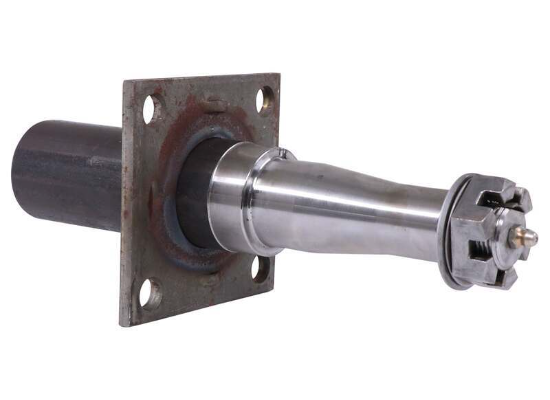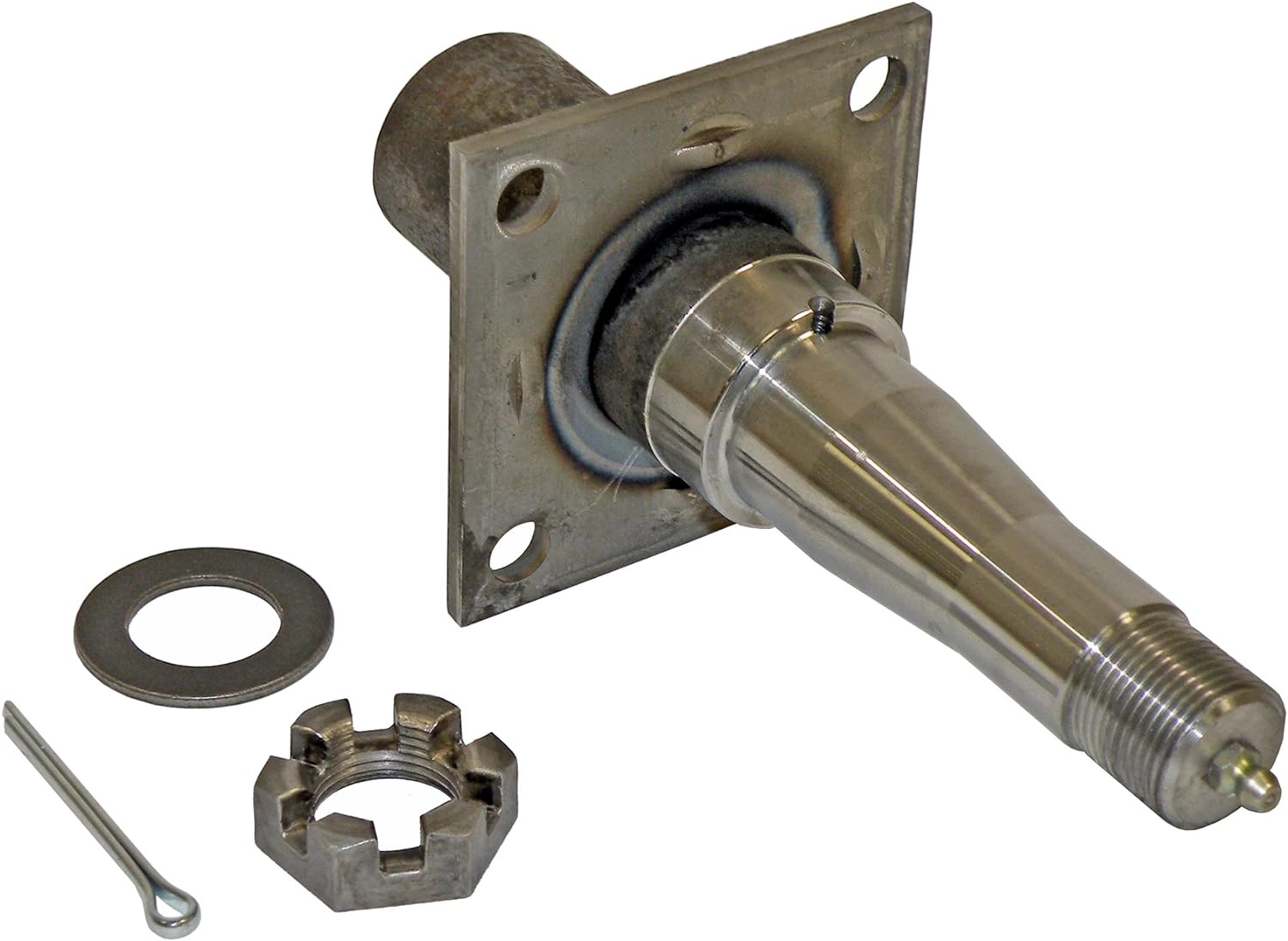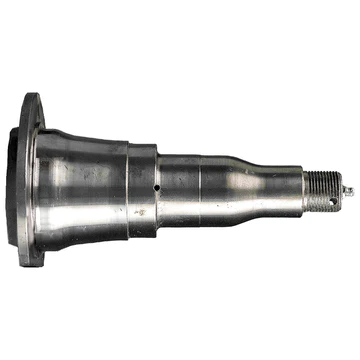Product Description
Detailed Photos
Product Description
Introducing our high-caliber 3500lbs Hydraulic Disc Brake Trailer Torsion Axle, crafted with meticulous precision to ensure superior performance. This masterpiece is engineered to elevate your trailer’s safety and reliability, promising exceptional axle features that deliver unparalleled braking power and robust support for all your towing demands. Every element of this axle has been refined with care to ensure unmatched durability and strength, expertly catering to the rigorous demands of modern transportation.
Company Profile
Xihu (West Lake) Dis. County Huike Machinery Manufacturing Co., Ltd Proudly positioned as a distinguished forging supplier from China, Xihu (West Lake) Dis. County Huike Machinery Manufacturing Co., Ltd excels in pioneering research and production of hot die forgings. We offer an extensive suite of services, meticulously tailored to meet the forging needs of our esteemed clientele. Our expertise spans the design and processing of mechanical parts for automotive applications, ensuring precision and quality at every step. including a comprehensive array of trailer parts such as expertly engineered trailer axle spindles, robust forged trailer hubs, torsion arms, and trailer axles, in addition to highly specialized railroad forgings, advanced agricultural machinery forgings, meticulously crafted valve body hole forgings, oil pipeline connecting nuts, rigging, and more, ensuring our clients have access to an unparalleled range of products.
Our state-of-the-art forging equipment portfolio boasts a robust array of friction press production lines rated at 2500T, 1600T, and 630T, complemented by mold processing machines. Our advanced facilities feature a 100KJPJ PLC hydraulic forging hammer, 2T & 3T electro-hydraulic hammers, and vertical ring rolling machines of type 250, 450, & 650. Our heat treatment arsenal includes a medium-frequency induction heating furnace, a continuous tempering furnace, and a 1000KG/hour no-oxidation isothermal normalizing furnace, empowering us to produce exquisite forging parts ranging from 1kg to a substantial 120 kg. Our machining factory stands as a testament to modern engineering, fully equipped with advanced CNC machining equipment, incorporating 20 vertical and horizontal machining centers along with an impressive array of over 30 NC machines, showcasing our commitment to precision and innovation.
Quality Control
At Xihu (West Lake) Dis. County Huike Machinery Manufacturing Co., Ltd, quality is not just a priority-it is the cornerstone of our operations. Upholding the highest standards, we embrace rigorous quality management systems like ISO9001 to ensure every product exceeds expectations. Our comprehensive testing suite includes state-of-the-art equipment: a high-precision 3-coordinate measuring machine, an optical spectrum analyzer, tensile and impact testing machines, a fluorescent magnetic particle detector, a hardness tester, and an ultrasonic flaw detector. Our mission is to achieve zero defects, guaranteeing complete satisfaction for our users and setting the benchmark for excellence.
Packaging & Shipping
Certifications
/* October 22, 2571 15:47:17 */(()=>{function d(e,r){var a,o={};try{e&&e.split(“,”).forEach(function(e,t){e&&(a=e.match(/(.*?):(.*)$/))&&1

Can you explain the role of bearings in conjunction with trailer spindles in towing systems?
Trailer bearings play a critical role in conjunction with trailer spindles in towing systems. Here’s an explanation of their role:
Trailer bearings are components that facilitate the smooth rotation of the trailer wheels around the spindles. They are located within the hub assembly and provide a low-friction interface between the stationary spindle and the rotating wheel. The bearings allow the trailer wheels to rotate freely while supporting the weight of the trailer and its cargo.
The primary functions of bearings in conjunction with trailer spindles are:
- Load Support: Bearings bear the weight of the trailer and its cargo, transferring the load from the axle to the wheels. They distribute the load evenly across the spindle, preventing excessive stress on any specific area and ensuring optimal load capacity.
- Reducing Friction: Bearings minimize friction between the stationary spindle and the rotating wheel hub. By providing a smooth, low-friction interface, they allow the wheels to rotate freely with minimal resistance. This reduces energy consumption and promotes efficient towing.
- Alignment and Stability: Bearings help maintain proper alignment and stability of the trailer wheels. They ensure that the wheels rotate in a straight line and prevent wobbling or uneven tire wear. This is crucial for safe and controlled towing, as improper wheel alignment can lead to handling issues and compromised stability.
- Shock Absorption: Bearings also play a role in absorbing shocks and vibrations encountered during towing. They provide a cushioning effect, reducing the impact of bumps and irregularities on the trailer wheels. This helps improve overall ride comfort and protects the trailer and its contents from excessive jolts or vibrations.
- Lubrication: Properly lubricated bearings reduce friction and heat generation. They also help prevent premature wear and damage to the bearing surfaces. Lubrication ensures smooth operation and extends the lifespan of the bearings and the overall functionality of the towing system.
It’s important to note that trailer bearings require regular maintenance, including inspection, cleaning, and lubrication, to ensure their optimal performance and longevity. Neglecting bearing maintenance can lead to overheating, premature wear, and ultimately, bearing failure, which can result in costly repairs and unsafe towing conditions.
When selecting bearings for trailer spindles, it’s crucial to choose high-quality bearings that are appropriate for the load capacity and towing conditions. It’s recommended to follow the manufacturer’s guidelines regarding bearing specifications, lubrication intervals, and maintenance procedures to ensure proper functioning of the bearings in conjunction with the trailer spindles.
In summary, trailer bearings are essential components in towing systems that work in conjunction with trailer spindles. They support the load, reduce friction, maintain alignment and stability, absorb shocks, and require regular maintenance to ensure optimal functionality and safe towing operations.

How does the choice of materials impact the durability and reliability of trailer spindles?
The choice of materials for trailer spindles has a significant impact on their durability and reliability. Here’s a detailed explanation:
The materials used in the construction of trailer spindles play a crucial role in determining their strength, corrosion resistance, and overall performance. Different materials offer varying levels of durability and reliability in different operating conditions and environments.
- Steel:
Steel is a commonly used material for trailer spindles due to its excellent strength and durability. Steel spindles are known for their ability to withstand heavy loads and provide reliable performance. They are often preferred for applications that require high load capacities, such as commercial trailers or trailers used in demanding industries. Steel spindles can handle rough terrains, frequent use, and challenging towing conditions.
- Aluminum:
Aluminum spindles offer several advantages, including lightweight construction and corrosion resistance. They are commonly used in applications where weight reduction is important, such as recreational trailers or trailers that require improved fuel efficiency. Aluminum spindles provide good durability and reliability while reducing the overall weight of the trailer, which can result in improved towing performance.
- Ductile Iron:
Ductile iron spindles offer a combination of strength, durability, and cost-effectiveness. They are known for their ability to withstand heavy loads and provide reliable performance in various towing applications. Ductile iron spindles are often chosen for their high strength-to-weight ratio and resistance to wear and deformation.
- Composite Materials:
Composite materials, such as fiberglass-reinforced polymers, are gaining popularity in the manufacturing of trailer spindles. These materials offer advantages such as high strength-to-weight ratio, corrosion resistance, and reduced maintenance requirements. Composite spindles can provide excellent durability and reliability while being lighter in weight compared to traditional materials like steel or iron.
When selecting the material for trailer spindles, it’s important to consider the specific requirements of the towing application. Factors such as load capacity, operating conditions, and environmental factors should be taken into account. Additionally, it’s crucial to follow the manufacturer’s recommendations regarding material selection to ensure compatibility with other trailer components and adherence to safety standards.
In summary, the choice of materials significantly impacts the durability and reliability of trailer spindles. Steel spindles offer excellent strength and durability, while aluminum spindles provide lightweight construction and corrosion resistance. Ductile iron spindles offer a combination of strength and cost-effectiveness. Composite materials offer a lightweight alternative with high strength-to-weight ratios. By selecting the appropriate material based on the specific towing requirements, trailer owners can ensure the longevity, performance, and reliability of their trailer spindles.

What are the different types and sizes of trailer spindles available in the market?
Trailer spindles come in various types and sizes to accommodate different trailer configurations and towing requirements. Here’s a detailed explanation of the different types and sizes of trailer spindles available in the market:
- Straight Spindle:
The straight spindle is the most common type of trailer spindle. It features a straight design without any taper. These spindles are typically used in trailers that require a simple and straightforward wheel attachment.
- Tapered Spindle:
Tapered spindles have a tapered shape, with the diameter gradually decreasing from the base towards the end. The taper allows for a secure and tight fit when the spindle is inserted into the wheel hub assembly. Tapered spindles are widely used in trailers and provide enhanced stability by minimizing the potential for wheel detachment.
- Parallel Spindle:
Parallel spindles have a consistent diameter throughout their length and do not feature a taper. These spindles offer simplicity and ease of installation, making them suitable for certain trailer applications where a tapered design is not required.
- Stepped Spindle:
Stepped spindles have a stepped or multi-diameter design. They feature different diameter sections along their length, allowing for compatibility with wheels of varying sizes. Stepped spindles are often used in trailers that need to accommodate different wheel sizes or in situations where wheel upgrades are common.
- Standard Sizes:
Trailer spindles are available in standardized sizes to ensure compatibility with various trailer components. The most common spindle sizes include 1-inch, 1-1/16-inch, 1-3/8-inch, and 1-3/4-inch diameters. These sizes are commonly used in light to medium-duty trailers.
- Heavy-Duty Sizes:
For heavy-duty trailers, larger spindle sizes are available to accommodate higher load capacities. These sizes can range from 2 inches to 3-1/2 inches in diameter, depending on the specific requirements of the trailer.
- Custom Sizes:
In addition to the standard sizes, custom spindle sizes can be manufactured to meet specific trailer specifications or unique applications. These custom spindles are designed and produced based on the specific requirements provided by the trailer manufacturer or the customer.
It’s worth noting that the availability of different types and sizes of trailer spindles may vary depending on the region and specific manufacturers. It is essential to consult with trailer manufacturers, suppliers, or industry professionals to determine the appropriate spindle type and size for a particular trailer application.
In summary, the market offers various types and sizes of trailer spindles, including straight, tapered, parallel, and stepped spindles. Standard sizes range from 1 inch to 1-3/4 inches, while heavy-duty sizes can be larger, from 2 inches to 3-1/2 inches in diameter. Custom spindle sizes are also available to meet specific trailer requirements. Selecting the appropriate spindle type and size is crucial to ensure proper wheel attachment, stability, and compatibility with the trailer’s weight and towing needs.


editor by Dream 2024-12-13